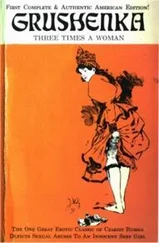Francisco Jose - Three Filipino Women
Здесь есть возможность читать онлайн «Francisco Jose - Three Filipino Women» весь текст электронной книги совершенно бесплатно (целиком полную версию без сокращений). В некоторых случаях можно слушать аудио, скачать через торрент в формате fb2 и присутствует краткое содержание. Год выпуска: 2013, ISBN: 2013, Издательство: Random House Publishing Group, Жанр: Современная проза, на английском языке. Описание произведения, (предисловие) а так же отзывы посетителей доступны на портале библиотеки ЛибКат.
- Название:Three Filipino Women
- Автор:
- Издательство:Random House Publishing Group
- Жанр:
- Год:2013
- ISBN:978-0-307-83028-9
- Рейтинг книги:4 / 5. Голосов: 1
-
Избранное:Добавить в избранное
- Отзывы:
-
Ваша оценка:
- 80
- 1
- 2
- 3
- 4
- 5
Three Filipino Women: краткое содержание, описание и аннотация
Предлагаем к чтению аннотацию, описание, краткое содержание или предисловие (зависит от того, что написал сам автор книги «Three Filipino Women»). Если вы не нашли необходимую информацию о книге — напишите в комментариях, мы постараемся отыскать её.
and
-examine the Philippine experience through the lives of three female characters, a prostitute, a student activist, and a politician.
Three Filipino Women — читать онлайн бесплатно полную книгу (весь текст) целиком
Ниже представлен текст книги, разбитый по страницам. Система сохранения места последней прочитанной страницы, позволяет с удобством читать онлайн бесплатно книгу «Three Filipino Women», без необходимости каждый раз заново искать на чём Вы остановились. Поставьте закладку, и сможете в любой момент перейти на страницу, на которой закончили чтение.
Интервал:
Закладка:
Those flip cards really helped. Before she went into a new territory, the team zeroed in on it, the important people, personal details — hobbies, deaths, birthdays, relatives — all these came in handy. She did not upstage the other candidates but sometimes the clamor for her was just too loud to be ignored. By now, they were calling, Manang , Narita! When it was her turn, she would start in the local language. She could converse passably in tongue twisters like Pangasinan and Zambal and she even picked up a bit of Tausug.
There was nothing intellectual or explosive about her speeches on the road. Soon, the audience would clamor for her to sing and she always gave them “Lahat ng Araw” which she included in her zarzuela. She even had different versions of it; a university poet whom she flattered wrote Ilokano lyrics and she had a journalist from Cebu do it in Cebuano as well. The song became a hit and look at all the record companies doing it in instrumental and vocals now.
But it was a case of overkill and I don’t know whose idea it was — Senator Reyes’ or Narita’s. Underneath the glossy exterior of that campaign, the music, the fanfare, there was something sinister. And that first meeting with Senator Reyes came to mind.
I am fully aware of course that to go deeper into this is to tread on dark, unfamiliar terra infirma. I can only guess her views on poverty developed because of her childhood; her rejection of the slums afterwards was based not on a sense of moral outrage but on aesthetics. She could not stand the unsightly around her, whether it was a man like me who did not comb his hair or a slum dweller’s barong-barong. Her view of the world was, therefore, cosmetic although she, herself, would not admit it.
The violence — and I had reports of it — was committed in many places, in our own town, mostly in our province. A former clerk in the municipio had dredged up the fact that her father had absconded with some money. The poor man was beaten up and Father had to treat him for lacerations. She was perhaps determined that in her homeground, she should be on top — which she was not only because Senator Reyes poured a lot of money but because she was the local girl who made good. The opposition mayor of Tubas, close to our town, was killed. It was a shooting “accident” and although people had come to Manila to say it was not, there was no mention of it in the papers. That was the extent to which the papers were manipulated. And vote-buying, bribery, dumping — I will not recite these. It is enough that I knew they happened not because she and her father-in-law were insecure but because they believed in overkill.
With both of them now in the Senate, I thought it was time to push through government programs such as those which we had worked so hard to shape. After the euphoria had died, I got the whole sheaf of proposals together one Saturday morning. It was a full two weeks after the election and I knew that the time was opportune to discuss them for soon the Senate sessions would start.
It was not that I personally was filled with love for the downtrodden, but in that small Negros town, Father had attended to the workers in the farm with free professional care. Mother taught school before she married Father and she tried her best to teach the children who did not attend public school the rudiments at least of writing and reading. Father had always hammered into us that the workers, though they were not as educated as we were, had the same blood. I was not about to organize them into a militant and radical labor union nor was I inclined to shout revolution like some of my colleagues at the university. I think I was too comfortable to do that, but I was not going to see them mired in either perpetual ignorance or poverty. I saw enough evidence in America to show that wealth — when spread around — would do everyone a bit of good.
Narita always called when she needed me, which was often. It was one of those few instances when I called her. “All right, Eddie. Come early enough so we can have lunch,” she said brightly.
I had already bought a Volks. Her money was useful and because she was happy with the group, she upped my consultancy fee as she called it to four thousand a month, much, much more than I was making at the university. I had difficulty convincing myself that I really earned it.
She was not yet up when I arrived and it was already past eleven. She had earlier gone horseback riding at the Polo Club then gone back to sleep. By noon, I was served coffee and a plateful of sandwiches and cold yogurt. I was halfway through when she came down in her dressing gown, a shimmery kind, her breasts showing through.
“That is a very sexy dress,” I said, thinking about New York again. In the almost three years since, we never had any kind of real intimacy and all the reward I got was an occasional kiss on the mouth, the pressing of bodies, a lingering handclasp. I was in a position where I couldn’t expect more.
She took the sandwiches away and told the cook to prepare the table at once. But I already had enough and I barely touched the Chateaubriand. It was a leisurely lunch and I could see that the arduous campaign had not ravaged her; she was as fresh and as lovely as ever. With our coffee, we went to the library. She noticed my bulky portfolio. “It is business then”, she smiled.
I recalled our first meeting with the senator in the same room, how we had talked about responsive government and that as she probably saw in her provincial sallies, the first priority was rural poverty, agrarian reform, anything to improve the lives of the rural poor. She listened for a few minutes while I mapped out the parameters of legislative action, but soon I could see that she was not concentrating.
“You are not interested,” I said with irritation.
“Because I know everything you are saying, Eddie, and right now, I am not really interested.”
I never felt as futile and as helpless as I did then, to be told that I was talking to a stone. I gathered the folders and dumped them into my briefcase. Then, more in sadness than in anger: “I had hoped you would remember not just Santa Ana but the things you told me. Am I wrong in hoping you won’t be like the rest? There should be conscience in politics, else we would be nothing but pigs …”
“Then let us be pigs,” she said with a vehemence that startled me. “Conscience, duty — all those virtues that you hear bandied about — my duty is not to God and country. It is to me — myself first, because without myself, what would there be? And look at you, you and your … genteel morality — what is it that you look forward to first? Your career, no less. I’m not here to clean the stables, to change tradition — the tradition in corruption. I am part of the herd although very much above the herd. Who can say this with the honesty that I am saying it?”
I could not speak.
She went on. “Listen, Eddie. In these four years, I will do what I can. Only a bit — for my image, for patronage. I am aiming beyond the Senate. Nothing but the top, the Presidency. You understand that? And when I’m there, that’s when we can go to town, do all the things you want to do. You think Papa is all that powerful? No, and neither will I be. I would be very pleased if you boys paid some attention to that. Focus on the next election because that’s where I’m headed. And I will use everything I can to get there.”
“Power has gone to your head,” I said. “You’re using people as if they were things. Objects. I thought you didn’t like America because it is like that.”
“I pay them well. I pay you very well. No one can top what I am giving them, or you.”
“I’ll go back there. To hell with your money.”
“You will rot there,” she said, trying to be conciliatory.
Читать дальшеИнтервал:
Закладка:
Похожие книги на «Three Filipino Women»
Представляем Вашему вниманию похожие книги на «Three Filipino Women» списком для выбора. Мы отобрали схожую по названию и смыслу литературу в надежде предоставить читателям больше вариантов отыскать новые, интересные, ещё непрочитанные произведения.
Обсуждение, отзывы о книге «Three Filipino Women» и просто собственные мнения читателей. Оставьте ваши комментарии, напишите, что Вы думаете о произведении, его смысле или главных героях. Укажите что конкретно понравилось, а что нет, и почему Вы так считаете.












